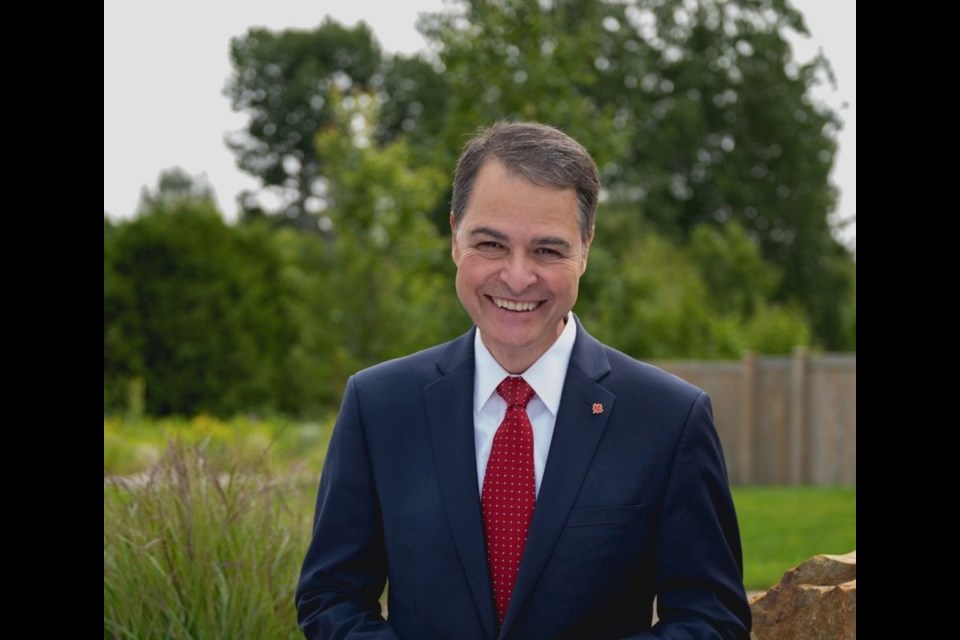Immigration levels are controlled by the federal government, as they should be, except for the sweetheart deal Quebec has, but provincial and municipal politicians increasingly want a say, and there is nothing wrong with that.
“All politics is local,” a phrase bandied about since 1932, has a ring of truth to it.
Serious federal political parties all support high immigration levels, and there was no disagreement among the contenders for the Conservative Party of Canada leadership in the televised debate from Edmonton. All agreed we need more immigrants, due to job shortages and an aging population.
While that segment was reassuring, listening to Pierre Poilievre drone on about “freedom,” bitcoin and wanting to fire the head of the Federal Bank of Canada made me wonder what people see in this guy. The purported frontrunner’s support for the truckers’ illegal occupation of Ottawa is astounding.
It may win him the party leadership but the Liberals and NDP will have so much ammunition against him in the next federal election that he will become nothing but an historical footnote. Two-thirds of Canadians opposed the truckers’ tactics. Does Poilievre conveniently forget that they wanted to overthrow the federal government?
Other revelations from the debate were that Leslyn Lewis is even further to the right than Poilievre, and Patrick Brown doesn’t read books. Lewis criticized Poilievre for not supporting the truckers’ misguided efforts quickly enough.
Jean Charest was the only credible person on stage.
Scott Aitchison was the only one showing a glimpse of a sense of humour. Asked what book he is reading, his reply was “Water.” “What is it about,” the moderator asked. “Water,” he responded.
Then we have the Ontario provincial election. Liberal leader Steven Del Duca announced in the leadership debate in North Bay that he wants Ontario to take over immigration, just like Quebec. He also said northern Ontario needs a special strategy.
First, Ontario will never get a deal like Quebec. Quebec’s arrangement is designed to protect the French language and any politician trying to change the Canada-Quebec Accord is dead in the water in Quebec. Second, most immigrants, by far, already come to Ontario.
Ontario gets more than three times the numbers of immigrants each year than its closest rivals, B.C. and Quebec.
As far as creating a special program for northern Ontario, one already exists. The Rural and Northern Immigration Pilot covers North Bay, Timmins, Sudbury, Sault Ste. Marie and Thunder Bay.
Making it a permanent program and widening its scope outside the five major cities would be a good policy move.
Municipally, immigration has not been at the forefront at city council. Mayor Al McDonald’s LinkedIn feed has consistently been about growing the city and attracting people here from southern Ontario. The fact that many of those targeted are immigrants is not mentioned.
The practice of poaching people from southern Ontario may be controversial, but, the GTA has too many people and we don’t have enough, so I have nothing against it.
The mayor and council are pro-immigration but they don’t shout it from the rooftops. It appears to be something nice to have, but they won’t go out of their way to make it happen.
This may change if Peter Chirico is elected mayor October 24. The CEO of the North Bay & District Chamber of Commerce leads the Rural and Northern Immigration Pilot initiative in the city and his family was part of the Italian immigrant wave that hit North Bay not all that long ago.
If he wins the mayoral race we will have people of Italian heritage in power at all three political levels—Anthony Rota federally, Vic Fedeli provincially and Peter Chirico municipally.
That of course assumes Fedeli retains his seat June 2. He likely will, as NDP candidate Erika Lougheed and Liberal candidate Tanya Vrebosch split the progressive vote. With some exceptions over the years, we typically go blue provincially and red federally.
Rota and Fedeli have always supported immigration. Rota was one of five Liberal MPs from northern Ontario who lobbied the then federal immigration minister to create the Rural and Northern Immigration Pilot. The genesis of RNIP was in northern Ontario, and the other locations going west were added later.
Fedeli demonstrated a solid grasp of immigration when I did a radio interview with him years ago. When I was a board member of the Ontario Council of Agencies Serving Immigrants, I arranged a meeting of the board with him in his Queen’s Park office.
Again, he demonstrated support for immigration and settlement services and impressed the NDP supporters on the board with his knowledge and sincerity.
Chirico says he will not be campaigning until after the June 2 provincial election, and I, for one, will be paying attention to what he has to say about immigration.
Editor’s Note: Don Curry is a Regulated Canadian Immigration Consultant living in North Bay and is a member of Bay Today’s community advisory committee.



